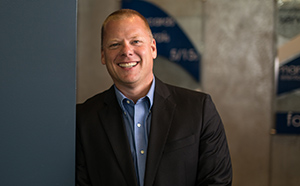Comedian and TV personality Steve Harvey said this back in 2011:
“Failure is a great teacher, and I think when you make mistakes and you recover from them and you treat them as valuable learning experiences, then you’ve got something to share.”
Hopefully he listened to his own advice 4 years later when he made the biggest mistake—well, in the universe—by announcing the wrong Miss Universe winner. The prime-time blunder would have been huge 10 years ago, but multiply that in today’s world of social sharing and this was truly a moment that needed major recovery efforts.
So how do you come back after a major mistake?
Step 1: Take responsibility. And own it.
The first and most important thing you can do after a big misstep is take responsibility. I don’t care how much is actually your fault; as a good leader, you must be able to take blame without passing any of the heat onto others. Any discussions that need to be held with those who may have contributed to the mistake must be held separately and privately, and should not play any outward role in your taking personal responsibility.
Steve Harvey got this one right when he took full responsibility for his crowning gaffe. He explained how he made the mistake without pointing fingers at the pageant or backstage crew members. Ultimately this mistake may always be a meme of choice when it comes to big blunders, but Harvey is still booking hosting gigs (even coming back to host the 2016 Miss Universe Pageant!) because he stepped up to the plate and took sole responsibility after his mistake.
Step 2: Express Remorse and Embrace the Scrutiny
This is a two-parter with varying degrees of difficulty. The first part is easy enough: express remorse. Who wouldn’t be remorseful of costing time, money or sometimes even sorrow? The key is to make sure you show it and say it. As a leader you must make sure your teams have faith in you, and in order to do that they have to know you are truly in it with them. Any mistake you make that may have an effect on them, to any degree, must be addressed.
The second part of this can be harder to swallow. That is, the embrace the scrutiny part. It’s difficult to be called out for a mistake. Most people’s first instinct is to get defensive or avoid the heat. Neither instinct will serve you well. Even if the chance to “get away” with the mistake is there or perhaps laying low while it blows over seems appealing—both will do more harm than good. We have to be thankful for the opportunity to learn from the mistake, no matter how hard it may seem in the immediacy.
Step 3: Create a Plan of Attack and Take Action!
And this is the step that makes all recovery possible: taking action. First of all, you must take an active role in the “cleanup” process rather than delegating it to others to handle. If you can’t actually fix the problem, your job becomes to break down what exactly happened: what was your role, what were the misjudgments, what was the breakdown on the path originally imagined?
Answering these questions is key in understanding how the mistake happened, and then the next step becomes preventing it from happening again. What are the lessons that can be taken from the experience? What is the plan of attack in the future and can the mistake be used in learning collateral to ensure it doesn’t happen again? Mistakes happen. Some bigger than others. The key is to take the right steps after the mistake in order to ensure it becomes a lesson, and to make sure you still have the confidence of your teammates moving forward.
Have you used these steps or similar ones after a big mistake? I’d love to hear how you feel the outcome played out because of them.

